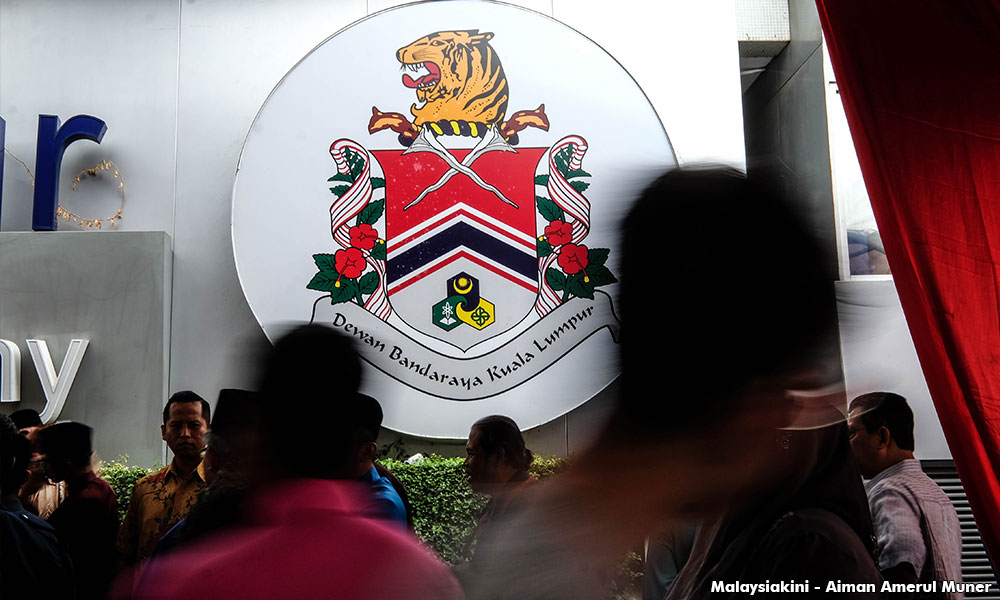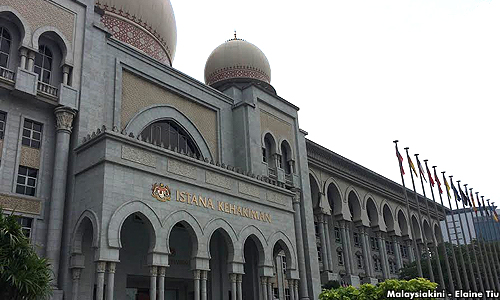It may have been a Pyrrhic victory. Besides the costs, the time and great effort put into this by residents and friends of Taman Rimba Kiara in Taman Tun Dr Ismail (TTDI), the group of like-minded lawyers, were worthwhile indeed.
The proverbial David slayed Goliath in the highest court in the land – the Federal Court. Its decision has serious consequences for the many incidences of the nexus between local authorities and developers.
There have been a number of cases where the local authorities ignored laws and conventions and pretended these don’t exist so that a few can profit at the expense of the people.
This decision should empower more people to take to task imperious decisions and those who ride roughshod over their duty to the residents.
The court noted that the mayor of Kuala Lumpur had complete control and discretion in determining whether to grant planning permission. His decision is final – ultimate unless challenged in a court of law. This conversely interpreted, extends to the heads of all local authorities.
The summary of the decision made this morning contains legalese, but it covered many areas of planning law. The conclusion was obvious: It was a condemnation of the mayor and the Kuala Lumpur City Hall (DBKL) for their many trespasses on the laws of the land.

When those with power are supported by those with deep pockets, it is said that they can move mountains. But such moves must be consistent with set laws, regulations and procedures.
While pointing to areas of conflict of interest, the court noted that the mayor wore three hats in three capacities:
The mayor was part of the entity that approved the subject land’s alienation.
The mayor was also part of the applicant for planning permission, as he was a member of the Board of Trustees of Yayasan Wilayah Persekutuan (which entered into a joint venture to develop the land with the Memang Perkasa).
The mayor was also the entity that granted the impugned development order.
Mayor made an erroneous decision
The court preferred and adopted the objective test on whether a reasonable or fair-minded member of the public who was not present at the decision-making meeting and did not know the actual fairness of the decision reached would conclude on the facts considered collectively, that there was a real likelihood of conflict of interest and/or bias.
“What is the knowledge to be imputed to this reasonable or fair-minded member of the public? The answer is, he is taken to know of all matters, whether in fact known or available to the public or not, which are in evidence at the trial.”
This does not mean that members of the public are entitled to attend planning committee meetings. The judgment does mean that whenever there is a challenge to a decision made or exercise of discretion by the mayor regarding development orders, the DBKL is obliged to disclose all relevant info to the court for purposes of the proceedings.

The court held that the mayor made an erroneous decision using an outdated law to support his decision to grant planning permission to develop the area.
Emphatically the court noted: “The mayor was, or ought to have been aware of the land use or zoning of the subject land, ie green area and open space under the KL Structure Plan 2020. Notwithstanding this, on alienation, the zoning or land use of the subject land was altered to mixed development.”
It was yet another condemnation of the mayor and his bid to change the land’s zoning which was made under the structure plan – which can be seen as an abuse of power vested in him.
In an immediate response, the former president of the Bangsar Business Council, Ronald Quay said it is obvious that the powers that be care tuppence about corporate governance especially when it affects them.
While the DBKL can use (taxpayers’) money for legal expenses to fight its residents, he argued, the residents have no recourse to such funds but to mobilise their own funds via donations or pro bono legal services.
“In this issue, can the plaintiffs, all of whom are members of the TTDI/KL community take issue with DBKL and claim compensation for gross negligence especially in respect of blatant violation of the FT Act, the KL Structure Plan 2020 and the conflict of interest?” he asked.
The fact that the DBKL has dragged this case all the way to the Federal Court is a waste of public funds besides making their own ratepayers stump out their own money to fight a cause that was completely unnecessary.
The court also formulated a three-way test to ascertain if there was a conflict of interest on the part of an authority issuing a development order.
The decision also means that there must be public participation in formulating any statutory development plan in the sense of having the right to be heard (for eg, as to objections), having the right to information and be informed of changes, and the right to bring legal action; and the authorities have a duty of full disclosure of all relevant information. - Mkini
R. NADESWARAN has in the past written extensively on the misuse of power on land issues by local authorities and will continue to keep his eyes glued on future developments. Comments: citizen.nades22@gmail.com
The views expressed here are those of the author/contributor and do not necessarily represent the views of MMKtT.




No comments:
Post a Comment
Note: Only a member of this blog may post a comment.